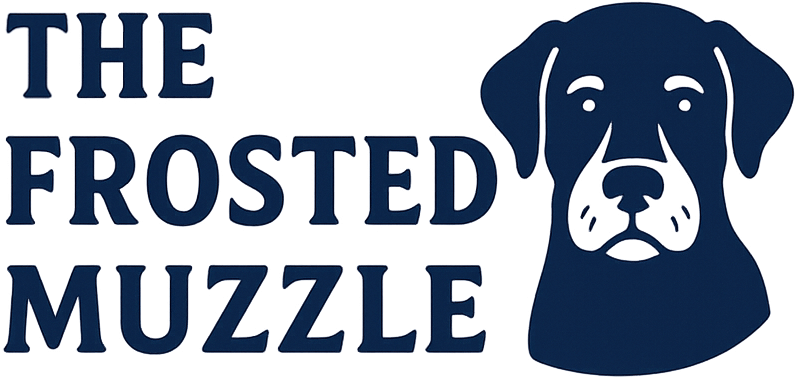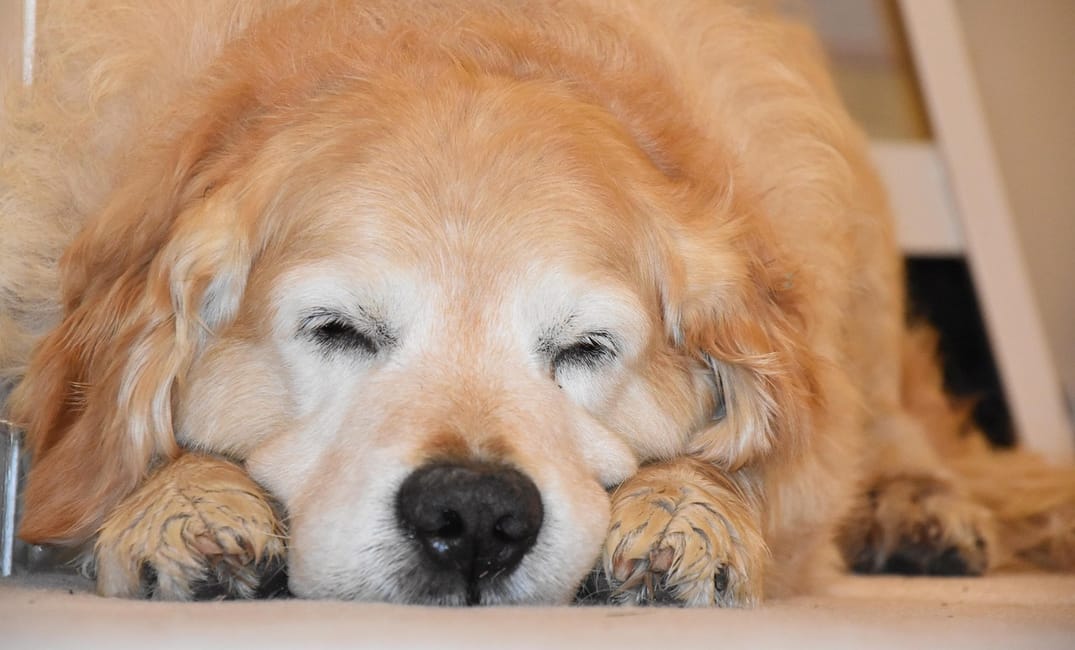Table of Contents
As dogs get older, their sleep patterns often shift in ways that can leave both them and their humans a bit restless. It’s not just about sleeping more, it's about how and when they sleep, and whether that sleep is actually restorative. If your senior dog is suddenly pacing at night, dozing during the day, or waking you up at 3 a.m., you’re not alone.
Here are five common sleep struggles older dogs face, and some gentle, practical ways you can help them rest more easily.
1. Nighttime Restlessness or Pacing
Many senior dogs experience something that looks a lot like insomnia. They might pace the hallway, bark at nothing, or wander around the house. This could be a sign of pain, anxiety, or even cognitive decline.
How to help:
Start by ruling out medical issues with your vet. If pain is the problem, managing arthritis or other chronic conditions can make a huge difference. If it's more behavioral or neurological, calming nighttime routines, nightlights, and soothing music can sometimes help ground your dog when they feel confused or uneasy.
2. Increased Daytime Napping
You might notice your dog sleeping much more during the day. While this can be part of the natural aging process, excessive napping could also mean their nighttime sleep isn’t very good.
How to help:
Encourage light activity during the day to help reset their internal clock. A short walk in the morning or gentle playtime in the afternoon can help them stay alert while the sun’s up and sleepier once it sets.
3. Difficulty Settling Down
Some senior dogs struggle to get comfortable before bed. They might circle, flop down, get up again, and repeat the process several times before finally falling asleep, if they do at all.
How to help:
Look at their bed. Is it supportive enough? Older dogs often benefit from orthopedic dog beds that cushion their joints. Heated beds or memory foam mats can be especially soothing for dogs with arthritis or other mobility issues.
4. Frequent Night Wakings
Just like elderly people, senior dogs may need to get up in the middle of the night to use the bathroom more often. Some may also wake from discomfort or because they’re disoriented.
How to help:
Make sure your dog has had a chance to relieve themselves before bed. Limit water intake an hour or two before bedtime (but don’t restrict it too much). If bathroom breaks aren’t the issue, try giving them a designated sleeping area close to you. Being near their human can reduce anxiety and help them settle back down quickly.
5. Vocalizing in Their Sleep
Whimpering, barking, or howling during sleep can be startling to witness. Sometimes it’s just dreaming, but in older dogs, it can also indicate pain or cognitive dysfunction.
How to help:
If it’s happening frequently, bring it up with your vet. Pain medications, anxiety treatments, or supplements for brain health (like omega-3s or SAM-e) may help. A calm, predictable bedtime routine can also ease their minds and bodies into more peaceful sleep.
Caring for a senior dog often means making a few changes to support their new needs. When it comes to sleep, small adjustments can make a big impact, for both your dog’s health and your own peace of mind. Your aging companion might not sleep like they used to, but with a little patience and love, they can still rest well and feel safe every night.

